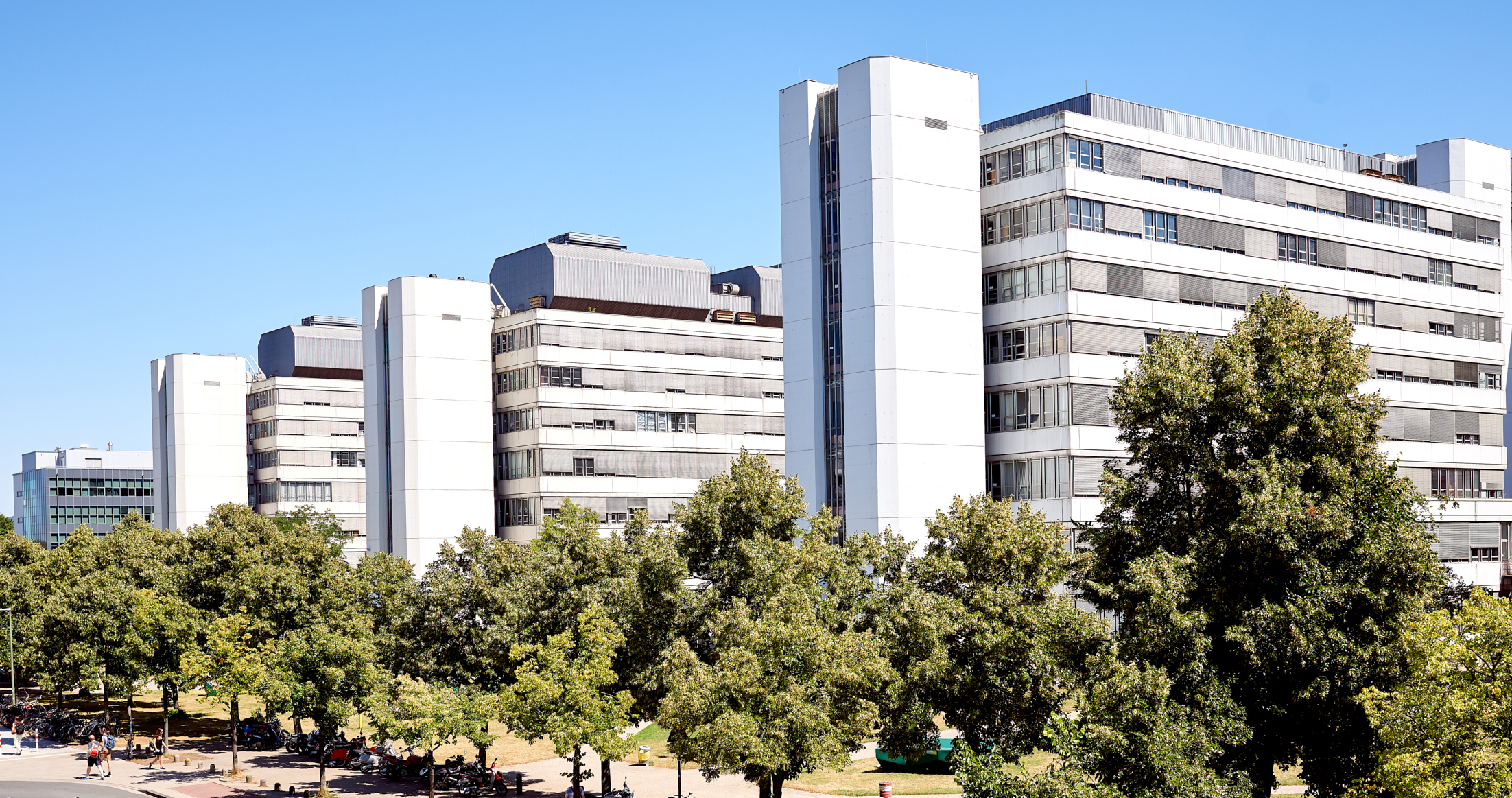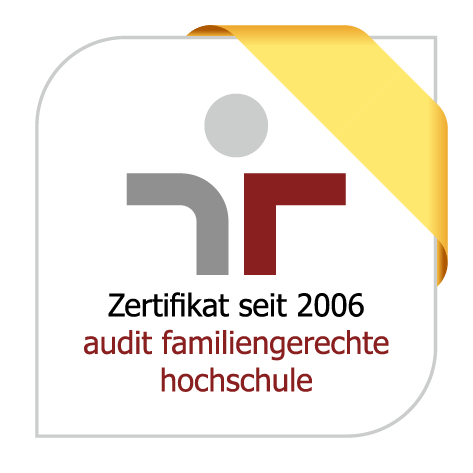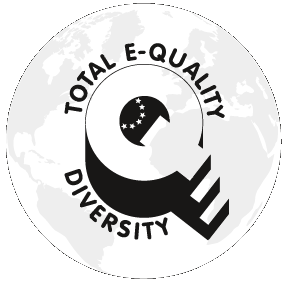
The Faculty of Sociology and/or the Faculty of Business Administration and Economics have up to six job openings: 
Employment is conducive to scientific qualification.
Research Positions
ID: Wiss25311
- starting: 01.04.2026
- part-time 75 %
- salary according to Remuneration level 13 TV-L
- fixed-term
As part of the Research Training Group 2951 "Cross-border Labour Markets: Transnational Market Makers, Infrastructures, Institutions", funded by the German Research Foundation (DFG), up to 6 doctoral research positions are available.
The Research Training Group (RTG) "Cross-border Labour Markets" is a joint programme of Bielefeld University and the University of Duisburg-Essen. Starting from April, 1, 2026, it offers a total of 11 positions for doctoral researchers (a maximum of 6 positions at Bielefeld University and the University of Duisburg-Essen respectively). The positions give successful applicants the opportunity to conduct their own research projects, within the context of the RTG research programme, and complete a doctoral dissertation within an inspiring international and interdisciplinary intellectual environment.
The RTG investigates cross-border labour markets with an emphasis on their transnational embeddedness, with a focus on the conditions for the emergence of cross-border labour markets, encompassing the roles that transnational 'market makers' play in this regard (such as states, multinational corporations, or intermediaries), transnational infrastructures (such as means of transportation, accommodation, job platforms, or social networks), and transnational institutions (rules and regulations, visa and border regimes, recognition of qualifications, or industrial relations). Especially welcome are PhD projects that adopt institutionalist perspectives on cross-border labour markets and employment relations, as well as projects that focus on cross-border platforms or clickwork or other forms of virtual work.
For more details on the RTG, its research programme and participating researchers, please consult the RTG webpage (https://rtg2951.de/).
The Research Training Group (RTG) "Cross-border Labour Markets" is a joint programme of Bielefeld University and the University of Duisburg-Essen. Starting from April, 1, 2026, it offers a total of 11 positions for doctoral researchers (a maximum of 6 positions at Bielefeld University and the University of Duisburg-Essen respectively). The positions give successful applicants the opportunity to conduct their own research projects, within the context of the RTG research programme, and complete a doctoral dissertation within an inspiring international and interdisciplinary intellectual environment.
The RTG investigates cross-border labour markets with an emphasis on their transnational embeddedness, with a focus on the conditions for the emergence of cross-border labour markets, encompassing the roles that transnational 'market makers' play in this regard (such as states, multinational corporations, or intermediaries), transnational infrastructures (such as means of transportation, accommodation, job platforms, or social networks), and transnational institutions (rules and regulations, visa and border regimes, recognition of qualifications, or industrial relations). Especially welcome are PhD projects that adopt institutionalist perspectives on cross-border labour markets and employment relations, as well as projects that focus on cross-border platforms or clickwork or other forms of virtual work.
For more details on the RTG, its research programme and participating researchers, please consult the RTG webpage (https://rtg2951.de/).
Your Tasks
- conducting a research project related to the RTG's research programme and completing a report and/or journal articles on the results (75 %)
- participating in the courses and events of the RTG qualification programme (20 %)
- contributing to the further development of the RTG qualification programme (5 %)
Employment is conducive to scientific qualification.
We offer
- salary according to Remuneration level 13 TV-L
- fixed-term (4 years) (§ 2 (1) sentence 1 of the WissZeitVG; in accordance with the provisions of the WissZeitVG and the Agreement on Satisfactory Conditions of Employment, the length of contract may differ in individual cases)
- part-time 75 %
- internal and external training opportunities
- amount of health, consulting and prevention services
- reconcilability of family and working life
- flexible working hours
- good transport connection
- supplementary company pension
- collegial working environment
- open and pleasant working atmosphere
- exciting, varied tasks
- modern work environment with digital processes
- reconcilability of family and work
- various offers (canteen, cafeteria, restaurants, Uni-Shop, ATM, etc.)
Your Profile
We expect
- completed relevant scientific university degree (e.g. Master) in sociology, economics, social anthropology, or a related social science
- open-mindedness towards the academic disciplines involved in the RTG, and commitment to interdisciplinary collaboration
- excellent command of English (written and spoken). The RTG's working language is English.
- independent, self-reliant, and committed mode of working
- cooperative and team-oriented way of working
Preferred experience and skills
- preliminary experiences in research (e.g., gained by working as a student assistant; participating in research seminars)
- topically or methodologically pertinant preliminary work with regard to the RTG research programme; e.g. in the master's thesis
Application Procedure
We are looking forward to receiving your application. To apply, please preferably use our online form via the application button below. Required application documents in English are (only PDFs): letter of motivation with reference to the Research Training Group and the names of three possible supervisors from the group of participating researchers in the order of your preference, CV, 3-5 pages research proposal for a dissertation project, an abstract of the planned project (max. 200 words), submission of a sample of your work, e.g. a term paper or selected chapters of your master’s thesis and university degree documents.
application deadline: 01.10.2025
Contact
Dr. Anna Spiegel
+49521 106-5169
grk2951@uni-bielefeld.de
Postal Address
Universität Bielefeld
Fakultät für Soziologie
Dr. Anna Spiegel
Postfach 10 01 31
33501 Bielefeld
Dr. Anna Spiegel
+49521 106-5169
grk2951@uni-bielefeld.de
Postal Address
Universität Bielefeld
Fakultät für Soziologie
Dr. Anna Spiegel
Postfach 10 01 31
33501 Bielefeld


